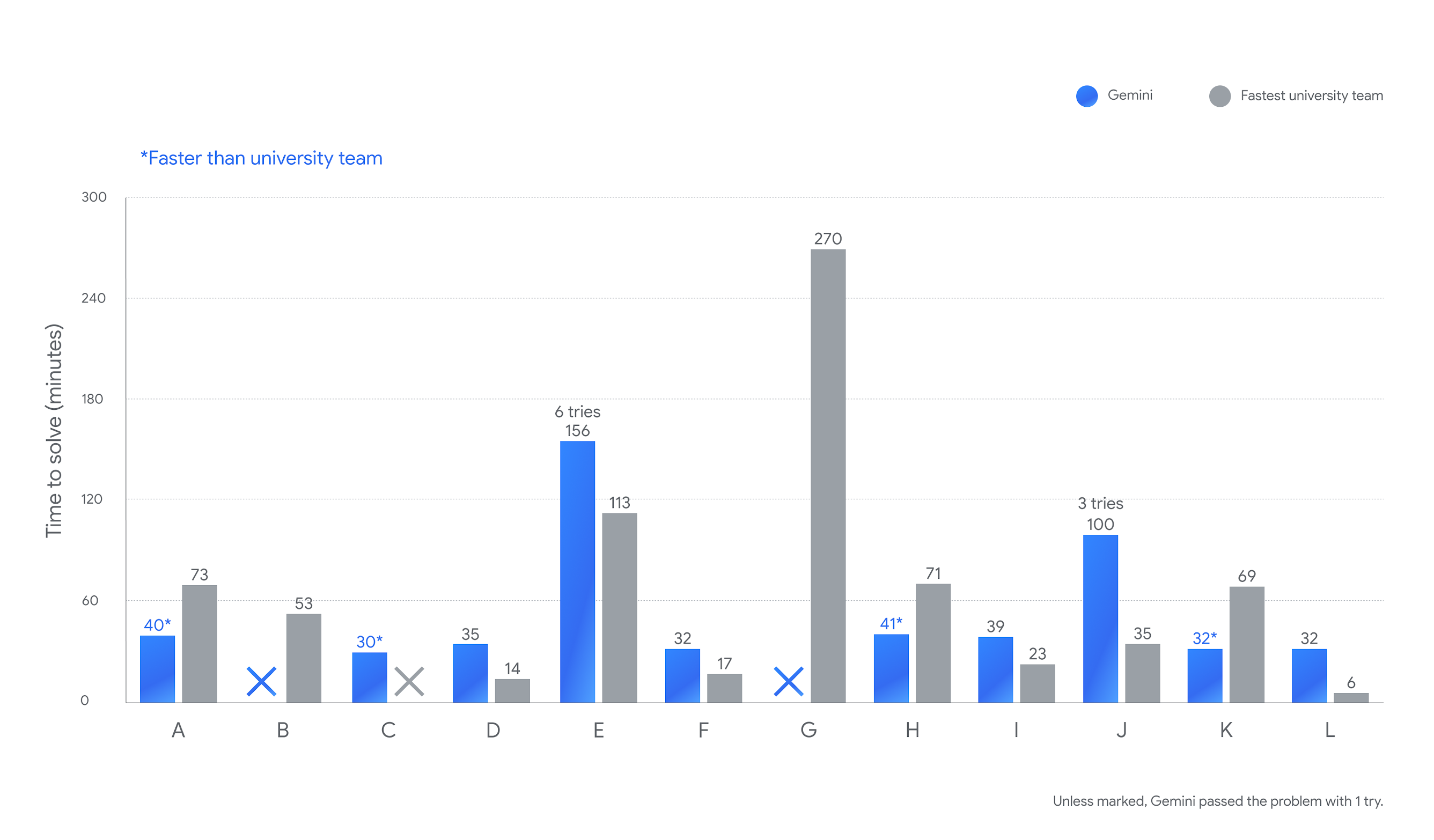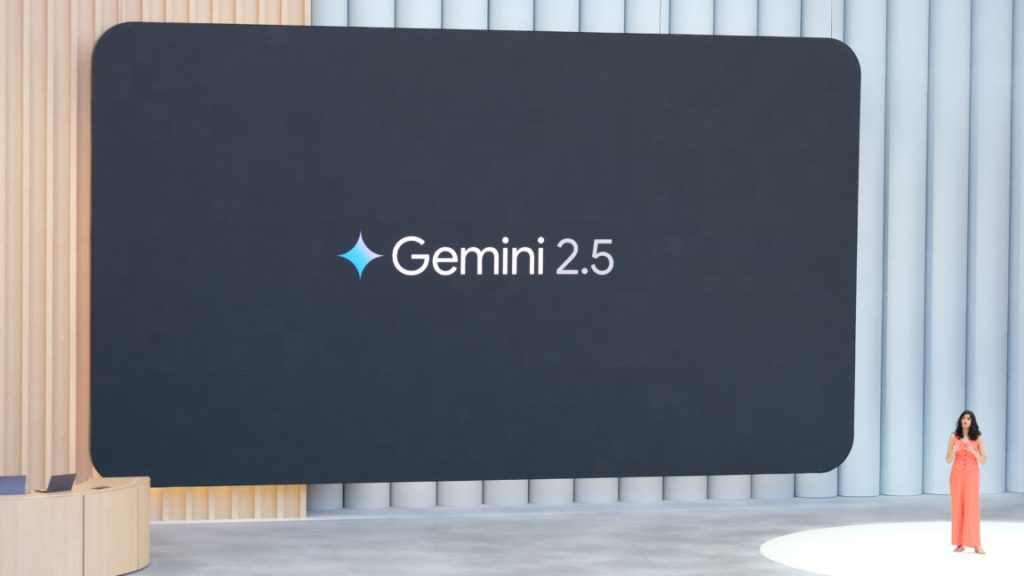More than human
At the ICPC, only correct solutions earn points, and the time it takes to come up with the solution affects the final score. Gemini reached the upper rankings quickly, completing eight problems correctly in just 45 minutes. After 677 minutes, Gemini 2.5 Deep Think had 10 correct answers, securing a second-place finish among the university teams.
You can take a look at all of Gemini’s solutions on GitHub, but Google points to Problem C as especially impressive. This question, a multi-dimensional optimization problem revolving around fictitious “flubber” storage and drainage rates, stumped every human team. But not Gemini.
According to Google, there are an infinite number of possible configurations for the flubber reservoirs, making it challenging to find the optimal setup. Gemini tackled the problem by assuming that each reservoir had a priority value, which allowed the model to find the most efficient configuration using a dynamic programming algorithm. After 30 minutes of churning on this problem, Deep Think used nested ternary search to pin down the correct values.

Gemini’s solutions for this year’s ICPC were scored by the event coordinators, but Google also turned Gemini 2.5 loose on previous ICPC problems. The company reports that its internal analysis showed Gemini also reached gold medal status for the 2023 and 2024 question sets.
Google believes Gemini’s ability to perform well in these kinds of advanced academic competitions portends AI’s future in industries like semiconductor engineering and biotechnology. The ability to tackle a complex problem with multi-step logic could make AI models like Gemini 2.5 invaluable to the people working in those fields. The company points out that if you combine the intelligence of the top-ranking university teams and Gemini, you get correct answers to all 12 ICPC problems.
Of course, five hours of screaming-fast inference processing doesn’t come cheap. Google isn’t saying how much power it took for an AI model to compete in the ICPC, but we can safely assume it was a lot. Even simpler consumer-facing models are too expensive to turn a profit right now, but AI that can solve previously unsolvable problems could justify the technology’s high cost.

